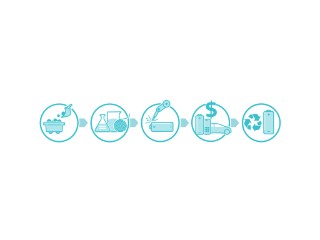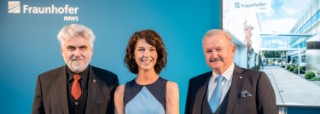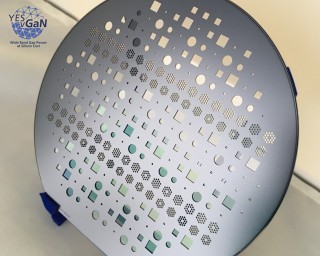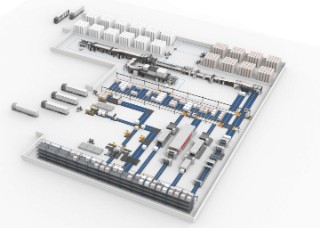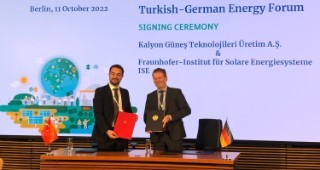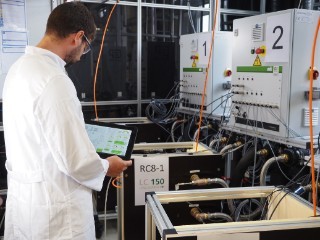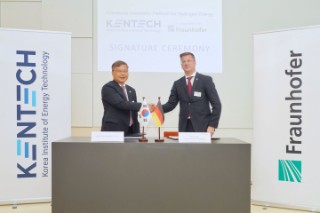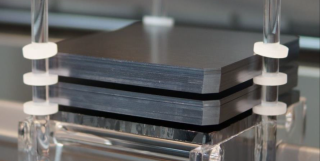Fraunhofer ISE / 2022
Advancing Perovskite-Silicon Tandem Solar Cell and Module Technology to Industrial Maturity
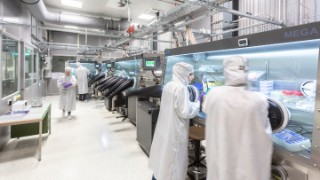
Stacking a solar cell made of perovskite material on top of a conventional sili-con solar cell enables a more effective use of the solar spectrum, compared to a pure silicon solar cell. Scientists around the world are presently conducting research on these perovskite-silicon solar cells, focusing on stability, durability and industrial manufacturing processes. Between 2020 and 2022, researchers at the Fraunhofer Institute for Solar Energy Systems ISE, together with industry partners, developed technologies for the production of perovskite-silicon full-format PV modules in the joint project "SWiTch". At the cell level, the research teams in the Fraunhofer lighthouse project "MaNiTU" and in the project "PrEs-to", funded by the German Federal Ministry of Economic Affairs and Climate Action BMWK, succeeded in scaling up perovskite-silicon tandem solar cells from laboratory cell size to wafer size. Within the framework of a recent col-laboration agreement with Meyer Burger, Fraunhofer ISE will further intensify its activities in the field of tandem solar cells and modules.
more info